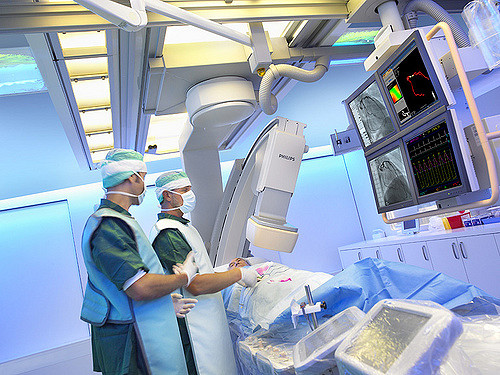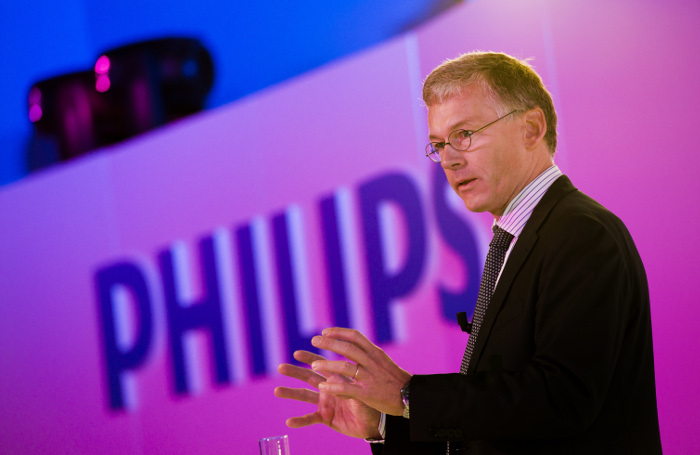In few areas of life is there the potential for innovation to have such a positive impact as in healthcare. New technologies and new business models are not only helping improve people’s lives and tackle the enormous health challenges of today, but also have the potential to put an end to the spiralling rise in healthcare costs.

“We want to move toward a world of personalized medicine that gets it right the first time and avoids unnecessary stress,” says Frans van Houten, CEO of Royal Philips. “At the same time, care needs to be delivered more cost-effectively and sustainably because otherwise it is unaffordable.”
In the first part of this equation—personalized medicine and continuous care for each patient—Philips is a recognized world leader. The company, which invests 9.5 percent of its revenue in innovation, is at the cutting edge of technologies such as artificial intelligence (AI) and machine learning to increase effectiveness. Philips recently demonstrated an application that uses AI to support clinicians in interpreting vast amounts of data from patients. Doctors are able to bring together historical and current radiology, pathology and genomics data, as well as information from lab tests, to choose the best possible treatment through a complete and patient-centric view. Each patient’s response is monitored so that the correct treatment protocol for them is reached while moving forward.
“We need a paradigm shift in how patients are diagnosed and how they are treated.”
Frans van Houten, CEO, Royal Philips
New technologies also have a major part to play in treating less life-threatening conditions, such as sleep apnea. In total, some four million patients with sleep impairments are connected to a secure digital platform in the cloud, Philips HealthSuite, where data about their sleep is uploaded and analyzed. Other personal health innovations that use HealthSuite include a medical-grade parenting platform that captures data from connected devices such as baby monitors, provides personalized feedback for parents and connects to family doctors and pediatricians.
“In some ways HealthSuite has the same concept as a Facebook page, but for your personal health and obviously in a secure setting providing validated information,” van Houten explains.

“We bring together data from various connected sources and apply AI to interpret the information, discover any patterns and make predictions about the patient. It can help people get diagnosed quickly and accurately the first time.”
Van Houten says that cloud computing is all set to transform the businesses of care providers and health insurance companies. In the future, if a patient gives his consent, different providers may be able to access a patient record in one single cloud-based location, rather than the data being stored in the separate enterprise systems of each provider. “We have to tear down the walls between care providers,” van Houten declares.
Because digital technologies can connect doctors and patients much more closely than in the past, the focus of healthcare delivery is moving away from acute and expensive care in hospitals, where it may be too late for the patient, and towards ambulatory clinics and outpatient facilities.
“We can use developments such as tele-health and leverage the cloud and AI to make sure that not everyone has to go to hospital,” van Houten effuses. “It is a very exciting area and it is all innovation-driven.”
Healthcare companies will also need to rethink their business models to respond to the growing impact of cloud computing and AI. Increasingly, reimbursements to care providers will be based on patient outcomes rather than just on patient volumes.
“It is inevitable that healthcare will move to more outcome-or value-based care,” van Houten says. “The fee for volume model is unsustainable and provides the wrong incentive.
We need to reward preventative care and supporting people with chronic diseases at home, instead of waiting for them to go to the emergency room.”![]()









